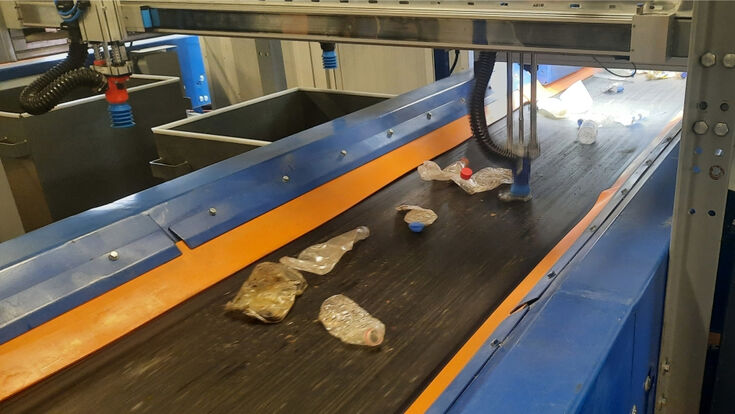Reclaim Waste Melbourne: Leading Approaches to Effective Liquid Waste Removal
Reclaim Waste Melbourne: Leading Approaches to Effective Liquid Waste Removal
Blog Article
Checking Out the Importance of Reclaim Waste in Sustainable Waste Monitoring Initiatives
In the world of sustainable waste monitoring, the idea of recovering waste emerges as an essential part that demands interest and factor to consider. As we navigate the complexities of contemporary waste disposal practices, the relevance of reclaiming waste reveals a nuanced approach to mitigating environmental effect and fostering a much more sustainable future. By examining the elaborate interaction in between waste improvement and sustainable waste administration campaigns, we start to unravel a narrative that extends beyond traditional waste disposal methods. Through a lens that focuses on source efficiency and environmental conservation, recovering waste provides a compelling opportunity for addressing pressing environmental difficulties while leading the way for ingenious remedies in the world of waste management.
Importance of Reclaiming Waste
Why is redeeming waste vital in lasting waste administration techniques? Redeeming waste plays an essential function in sustainable waste administration by decreasing the amount of waste sent out to land fills, conserving all-natural sources, and reducing ecological impact.
In addition, reclaiming waste promotes a circular economic situation where materials are reused and recycled constantly, advertising a much more lasting and efficient usage of resources. It additionally adds to the creation of environment-friendly tasks and economic growth in the recycling and waste administration industry. By including waste improvement practices into waste management techniques, neighborhoods and companies can move towards a more sustainable future, where waste is checked out not as a concern but as a beneficial resource.
Benefits for the Atmosphere
In the world of sustainable waste monitoring, the technique of reclaiming waste not only reduces and preserves all-natural sources waste sent to land fills but likewise generates substantial advantages for the environment. By reclaiming waste materials, such as metals, glass, plastics, and raw material, the environmental influence of resource removal and manufacturing is minimized (Liquid waste removal). This causes reduced energy intake, minimized greenhouse gas emissions, and reduced degrees of air and water contamination related to drawing out basic materials
In addition, reclaiming waste assists in the preservation of biodiversity and natural environments. It minimizes the requirement for landfill space, consequently lessening land deterioration and environment damage. Additionally, the process of reclaiming waste usually includes recycling and repurposing materials, which subsequently lowers the need for brand-new items and the linked power and resources required for their manufacturing.
Contribution to Circular Economy
Playing a critical duty in fostering sustainability and resource efficiency, reclaiming waste makes a considerable contribution to the circular economy. By reintroducing thrown out materials back into the manufacturing cycle, reclaiming waste minimizes the requirement for virgin sources, thereby lowering the overall ecological effect of resource removal and usage. This procedure lines up with the principles of the round economic climate, which stresses making best use of the value and utility of sources via closed-loop systems.
As a result, reclaiming waste helps to produce a much more sustainable and resistant economy that is much less dependent on scarce sources and susceptible to disruptions in the supply chain. Inevitably, by integrating waste recovery methods into waste monitoring campaigns, areas and companies can actively contribute to developing a much more regenerative and round economic situation.
Reducing Garbage Dump Waste

Education and learning and understanding campaigns on correct waste disposal and the value of lowering, recycling, and recycling can additionally play an essential duty in lowering garbage dump waste. By focusing on the decrease of land fill waste, lasting waste administration methods can be enhanced, leading to a healthier atmosphere and economic climate.

Future Ramifications
Thinking about the rapid advancements in modern technology and advancing ecological challenges, the future ramifications of lasting waste monitoring are positioned to change existing methods. The fostering of innovative modern technologies such as expert system, Web of Points (IoT), and blockchain can considerably enhance waste tracking, arranging, and recycling processes. These innovations enable real-time monitoring of waste streams, identification of recyclable materials, and enhanced performance in resource allocation.
Moreover, the change in the direction of a circular economic climate model, where resources are reused, reused, or upcycled, will end up being significantly widespread. This shift not just minimizes the reliance on virgin materials but also decreases waste generation, bring about a much more eco friendly and sustainable waste monitoring approach.
Furthermore, the integration of lasting waste monitoring practices right into wider sustainability schedules is anticipated to get grip. Liquid waste removal. Organizations and federal governments worldwide are acknowledging the importance of waste decrease and recycling in combating environment adjustment and advertising a circular economic climate. Because of this, guidelines and policies supporting lasting waste monitoring efforts are most likely to come to be extra rigid, driving sectors in the direction of more green practices
Verdict
In verdict, the value of recovering waste in sustainable waste management initiatives can not be overemphasized. By recovering waste, we can decrease ecological effect, contribute to a round economic climate, and reduce landfill waste.
By analyzing the elaborate interplay between waste recovery and lasting waste administration efforts, we begin to unravel a story that expands beyond conventional waste disposal methods. Redeeming waste plays a vital function in sustainable waste monitoring by lowering the quantity of waste sent to land fills, preserving natural sources, and Related Site decreasing ecological impact. By incorporating waste recovery methods into waste monitoring neighborhoods, strategies and services can move in the direction of a more lasting future, where waste is seen not as a worry however as a valuable resource.

Report this page